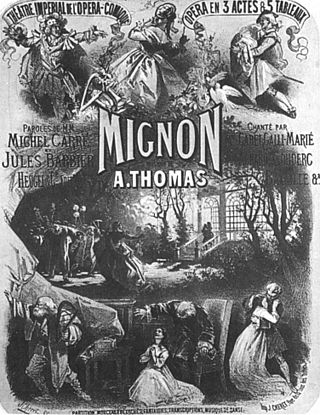
Mignon is an 1866 opéra comique in three acts by Ambroise Thomas. The original French libretto was by Jules Barbier and Michel Carré, based on Goethe's 1795-96 novel Wilhelm Meisters Lehrjahre. The Italian version was translated by Giuseppe Zaffira. The opera is mentioned in James Joyce's "The Dead" and Willa Cather's The Professor's House. Thomas's goddaughter Mignon Nevada was named after the main character.

The Devil and Kate, Op. 112, B.201, is an opera in three acts by Antonín Dvořák to a Czech libretto by Adolf Wenig. It is based on a farce by Josef Kajetán Tyl, and the story also had been treated as the fairy tale Devil and Káča by Božena Němcová. The first performance of the opera was at the National Theatre, Prague, on 23 November 1899, under Adolf Čech.
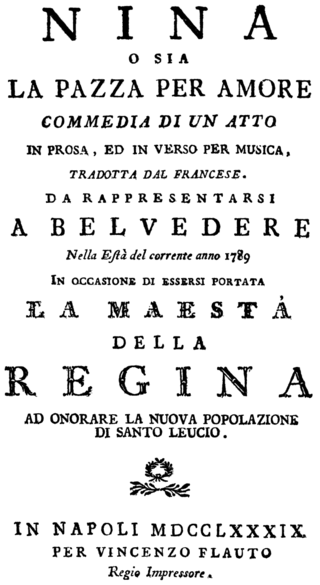
Nina, o sia La pazza per amore is an opera, described in 1790 as a commedia in prosa ed in verso per musica, in two acts by Giovanni Paisiello to an Italian libretto by Giovanni Battista Lorenzi after Giuseppe Carpani's translation of Benoît-Joseph Marsollier's Nina, ou La folle par amour, set by Nicolas Dalayrac in 1786. The work is a sentimental comedy with set numbers, recitative and spoken dialog. It is set in Italy in the 18th century. Nina was first performed in a one-act version at the Teatro del Reale Sito di Belvedere in Caserta, San Leucio on 25 June 1789. The revised and familiar two-act work was presented at the Teatro dei Fiorentini in Naples in the autumn of 1790.

The Consul is an opera in three acts with music and libretto by Gian Carlo Menotti, his first full-length opera.
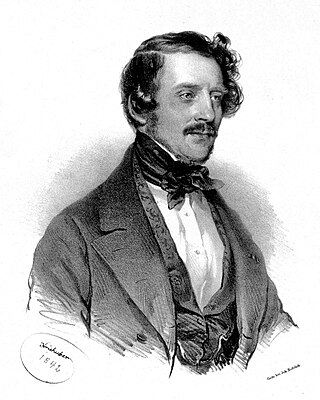
Maria Padilla is a melodramma, or opera, in three acts by Gaetano Donizetti. Gaetano Rossi and the composer wrote the Italian libretto after François Ancelot's play. It premiered on 26 December 1841 at La Scala, Milan. The plot is loosely based on the historical figure María de Padilla, the mistress of Pedro the Cruel, King of Castile.
Isabeau is a leggenda drammatica or opera in three parts by Pietro Mascagni, 1911, from an Italian libretto by Luigi Illica. Mascagni conducted its first performance on 2 June 1911 at the Teatro Coliseo, Buenos Aires.

The Nightingale is a short opera in three acts by Igor Stravinsky to a Russian-language libretto by him and Stepan Mitusov, based on a tale by Hans Christian Andersen: a nasty Chinese Emperor is reduced to tears and made kind by a small grey bird. It was completed on 28 March 1914 and premiered a few weeks later, on 26 May, by the Ballets Russes conducted by Pierre Monteux at the Palais Garnier in Paris. Publication, by the then Paris-based Éditions Russes de Musique, followed only in 1923 and caused the opera to become known by its French title of Le Rossignol and French descriptor of conte lyrique, or lyric tale, despite its being wholly Russian.

Le comte Ory is a comic opera written by Gioachino Rossini in 1828. Some of the music originates from his opera Il viaggio a Reims written three years earlier for the coronation of Charles X. The French libretto was by Eugène Scribe and Charles-Gaspard Delestre-Poirson adapted from a comedy they had first written in 1817.
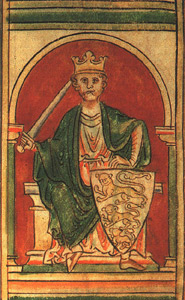
Richard Cœur-de-lion is an opéra comique, described as a comédie mise en musique, by the Belgian composer André Grétry. The French text was by Michel-Jean Sedaine. The work is generally recognised as Grétry's masterpiece and one of the most important French opéras comiques. It is based on a legend about King Richard I of England's captivity in Austria and his rescue by the troubadour Blondel de Nesle.

Le Cheval de bronze is an opéra comique by the French composer Daniel Auber, first performed on 23 March 1835 by the Opéra-Comique at the Salle de la Bourse in Paris. The libretto is by Auber's regular collaborator, Eugène Scribe and the piece was a great success in its day. In 1857, it was transformed into an opera-ballet, but this did not hold the stage. The overture is one of Auber's most popular. The first-act finale expands on the final phrases from the first-act finale of Mozart's Così fan tutte. The composer tried to reflect the Chinese setting of the story in the music.

Le pré aux clercs is an opéra comique in three acts by Ferdinand Hérold with a libretto by François-Antoine-Eugène de Planard based on Prosper Mérimée's Chronique du temps de Charles IX of 1829.

Armida Abbandonata is an opera in three acts by the Italian composer Niccolò Jommelli. The libretto, by Francesco Saverio De Rogatis, is based on the epic poem Jerusalem Delivered by Torquato Tasso. The opera was first performed at the Teatro San Carlo, Naples, on 30 May 1770. The young Wolfgang Amadeus Mozart was in the audience. He described the work as "beautiful but too serious and old-fashioned for the theatre". Nevertheless, despite a lukewarm reception at its premiere, Armida abbandonata was widely performed throughout Italy in the following years.
The Bispham Memorial Medal Award was an award for operas written in English which was named for baritone David Bispham, who was a great proponent of performing opera in English in the United States. It was traditionally awarded to American composers, frequently for an opera on an American subject. It originated from the Opera in Our Language Foundation, Inc., founded by composer Eleanor Everest Freer, and Edith Rockefeller McCormick, in 1921. After David Bispham's death in October 1921, Eleanor Everest Freer also founded the David Bispham Memorial Fund, Inc., in March 1922. Eleanor Everest Freer was chairman, and Edith Rockefeller McCormick was treasurer, of both organizations. On April 7, 1924, the two organizations merged to become the American Opera Society of Chicago. The first medal was awarded by the American Opera Society of Chicago in 1924 to Ernest Trow Carter, for his opera The White Bird, which saw its first full performance at the Studebaker Theater, in Chicago, on March 6, 1924. The last Medal for an opera was awarded around 1953 to Vittorio Giannini for The Taming of the Shrew. The award was funded in part by David Bispham's will, and also in part by Eleanor Everest Freer, who, in addition, was one of its recipients. Other recipients include :

Ralph Lyford was an American composer and conductor. He rose to prominence as the managing director of the Cincinnati Opera and as a 20th-century advocate for opera to be written and performed in English.
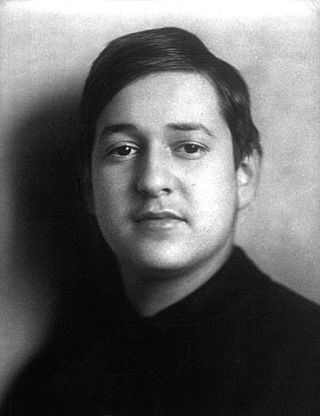
Violanta, Op. 8, is a one-act opera by Erich Wolfgang Korngold. The libretto is by the Austrian playwright Hans Müller-Einigen. It is Korngold's second opera, written when he was seventeen years old.

Cincinnati Opera is an American opera company based in Cincinnati, Ohio and the second oldest opera company in the United States. Beginning with its first season in 1920, Cincinnati Opera has produced operas in the summer months of June and July with the Cincinnati Symphony Orchestra providing orchestral accompaniment.

Eliza, ou Le voyage aux glaciers du Mont St Bernard is an opéra comique in two acts by Luigi Cherubini with a French libretto by Jacques-Antoine de Révéroni Saint-Cyr. It was first performed at the Théâtre Feydeau, Paris on 13 December 1794.

Flammen (Flames) is a one-act opera by Franz Schreker, on a libretto by Dora Leen, pseudonym of Dora Pollak.

Maria Carbone was an Italian operatic soprano. She created the lead female roles in two of Gian Francesco Malipiero's operas: the title role in Ecuba and Cleopatra in Antonio e Cleopatra.

















